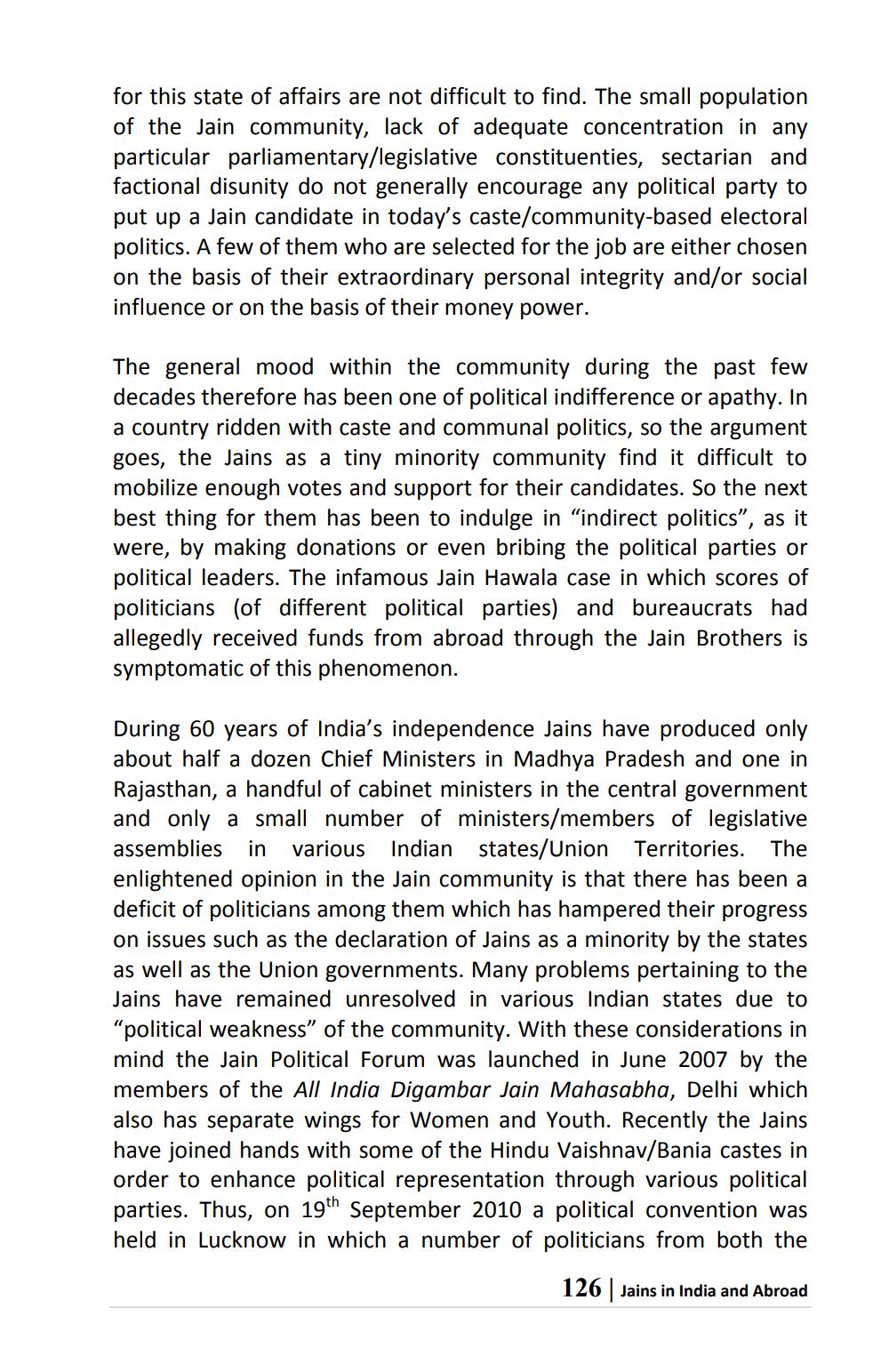________________
for this state of affairs are not difficult to find. The small population of the Jain community, lack of adequate concentration in any particular parliamentary/legislative constituenties, sectarian and factional disunity do not generally encourage any political party to put up a Jain candidate in today's caste/community-based electoral politics. A few of them who are selected for the job are either chosen on the basis of their extraordinary personal integrity and/or social influence or on the basis of their money power.
The general mood within the community during the past few decades therefore has been one of political indifference or apathy. In a country ridden with caste and communal politics, so the argument goes, the Jains as a tiny minority community find it difficult to mobilize enough votes and support for their candidates. So the next best thing for them has been to indulge in "indirect politics", as it were, by making donations or even bribing the political parties or political leaders. The infamous Jain Hawala case in which scores of politicians (of different political parties) and bureaucrats had allegedly received funds from abroad through the Jain Brothers is symptomatic of this phenomenon.
During 60 years of India's independence Jains have produced only about half a dozen Chief Ministers in Madhya Pradesh and one in Rajasthan, a handful of cabinet ministers in the central government and only a small number of ministers/members of legislative assemblies in various Indian states/Union Territories. The enlightened opinion in the Jain community is that there has been a deficit of politicians among them which has hampered their progress on issues such as the declaration of Jains as a minority by the states as well as the Union governments. Many problems pertaining to the Jains have remained unresolved in various Indian states due to "political weakness" of the community. With these considerations in mind the Jain Political Forum was launched in June 2007 by the members of the All India Digambar Jain Mahasabha, Delhi which also has separate wings for Women and Youth. Recently the Jains have joined hands with some of the Hindu Vaishnav/Bania castes in order to enhance political representation through various political parties. Thus, on 19th September 2010 a political convention was held in Lucknow in which a number of politicians from both the
126 Jains in India and Abroad




